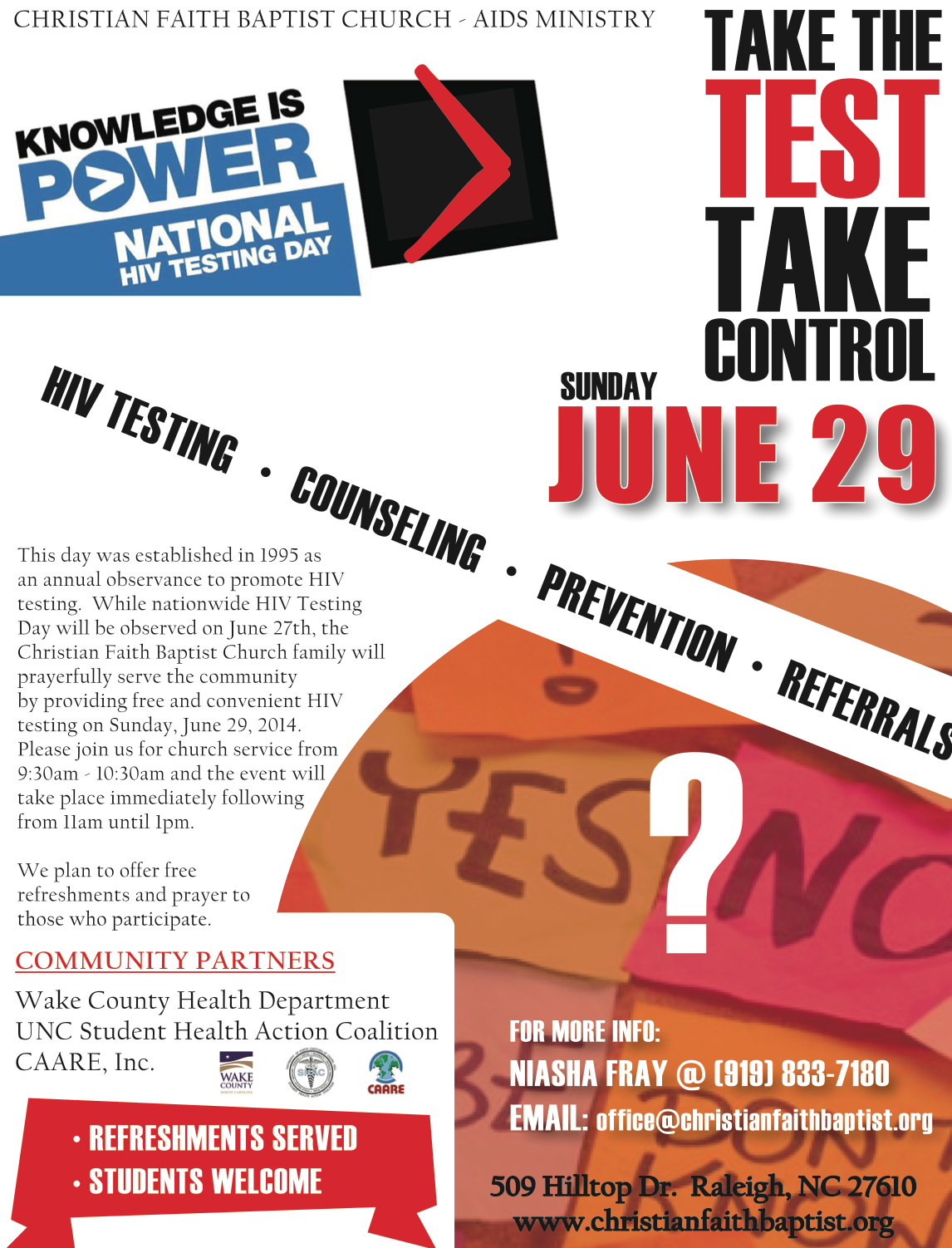myHIN Blog
Category: Sexual Health Articles

March 06, 2014
The TURN UP: Spring Break Safety
With Spring Break literally around the corner, college students everywhere, and I mean EVERYWHERE are gearing up to travel to distance and tropical places to soak up some sun and jump in the water. While most students are only concentrating on getting that last minute workout in for washboards abs or purchasing their last minute wardrobe findings, I guarantee no one is thinking about STDs!
Instead, most college students are thinking about fun, alcohol and parties. Don’t get me wrong, nothing is wrong with having fun and of course making lifetime memories, BUT be SMART about it! Don’t forget about your morals and values, or should I say “home training”. Have “responsible” fun. Yes, spring break is about having a good time and getting away from the books, but don’t be naive.
Drink Responsibly
 Personally, do yourself a favor and party smart. Pace yourself if you choose to drink, and avoid hard alcohol if you can or other drinks that are powerful and have fast effects—cause drunks make for “easy targets”.
Personally, do yourself a favor and party smart. Pace yourself if you choose to drink, and avoid hard alcohol if you can or other drinks that are powerful and have fast effects—cause drunks make for “easy targets”.
According to a study by the University of Wisconsin, 75 percent of college males and 43 percent of females reported being intoxicated on a daily basis during spring break. Which brings me to another point of discussion; don’t let alcohol blur the lines of love! There is no such thing as “I want to get to know you” or “love at first sight” during spring break! Just lust, deceitful lies, and sexual transmitted diseases! So, be smart and not STUPID!
Stay Safe: Safe Sex, Know Your Facts and Know Your Status
The only 100% sure way to prevent sexually transmitted diseases is by not having sex. If you choose to have sex with a stranger—which isn’t best idea—use something called “condoms”. We are college students, so this should not be hard. Stock up on protection before you leave home so you never find yourself in a compromised situation. If this isn’t enough for you, here are the facts: Women are more likely to be victims of sexual violence than men. Women who experience both sexual and physical abuse are significantly more likely to have sexually transmitted diseases. Take precautions and avoid situations or persons that may place you at risk for harm. Decide before even going on spring break what you’re willing to do, and then get to work setting your boundaries early and often. If you meet someone and decide to shack up, be up front with him or her if sex isn’t in the plan. Maybe something like, “Hey good lookin’. I’ve had fun this evening, but no sex tonight.” But seriously, don’t ever let anyone talk you into doing something you’re uncomfortable with.
Keep Safe and Hang With Your Friends
Lastly, “if you go out with your friends, go home with your friends.” It’s one of those things that keeps you a whole lot safer, and eliminates the bad, ugly, and stupid drama. This way you can look out for one another, and get a friend home who is too intoxicated to be out. So this spring break, think a little bit before you act! I’m sure that one week of fun is not worth your life! Don’t turn up too much, so that you look like a fool!
Share

February 27, 2014
Condoms Don’t Protect From Everything
Some people think they know everything there is to know about sexually transmitted diseases. The possibility of catching gonorrhea, syphilis, or even HIV is a scary thought- but some have that perception that they won’t catch anything. Maybe you wear condoms during sexual intercourse so you think that you’re good and have nothing to worry about, right? Well, I must inform you that condoms don’t protect from everything. Even some of the most elite individuals in society are walking around with sexually transmitted diseases. Yes- this is not a joke.
Did You Know Condoms Have a Fail Rate?
Statistics show that condoms have an annual 11% fail rate. Not so safe as you imagined after all… Even when condoms are used, they do not fully protect from sexually transmitted diseases that are passed by skin-to-skin contact. Just this statement alone opens the door for many diseases to walk in and take residence in your body if you are not careful.
Here are some tips you can use in order to lower your risk of catching an STD:
1. Get Tested. Use STD Testing to Know Your Status!
This may sound like an obvious answer but there are still so many people who do not know their std status. I will admit that you fear what you do not know. Having a close friend to go get tested with you can help eliminate that fear you have. That “what if” question will continue to linger until you make the decision to know you status for yourself. We have a specific area on the myHealthImpact website where you can type in your zip code and you will be informed of testing locations that are close to you.
2: Know the Safe Sex Facts For Yourself
There are so many resources available that will provide information on safe sex and sexually transmitted diseases. Saying that you were not informed anymore can no longer be an excuse. Sometimes you have to take the initiative to seek out information for yourself. Ultimately, how can you inform someone about STDs if you don’t know about them yourself?
3. Abstinence.
This is something that the younger generation doesn’t hear a lot about anymore. The media is constantly portraying sex in advertisements, song lyrics and online which makes it seem acceptable. Remaining abstinent until marriage is the only way you will be able to know your status for sure. You don’t run the risk of catching a sexually transmitted disease or early parenthood. This may seem challenging but it is possible. Make a promise to yourself that you will honor and protect your body. Anytime you find yourself being tempted, remember that promise you made to yourself. It will be worth the wait for that special someone.

These diseases are REAL people. While all sexually transmitted diseases don’t lead to death, some of them do. Whether you continue to have sex before marriage or wait until marriage is totally up to you. Whatever you decide, I encourage you to be safe. While condoms do protect from some STDs, they don’t protect from everything. Just keep that in mind.
Share

February 16, 2014
Smart Condoms: Could These Be The Best Condoms Created to Date?
As we all know condoms do not prevent all sexual transmitted diseases (STDs) and sexual transmitted infections (STIs) during sex. Well why not build a better condom. Last November the Bill and Melinda Gates foundation received over 812 entries for the “Build-a-better-condom” competition. A reported 11 entries received a grant of $100,000 to produce their condoms and hopefully bridge the gap for condom innovation. This is where tech meets health.
Talk about a smart condoms. Some of these entries range from polymer based composite materials to biologically engineering material for a “significant enhancement for male pleasure.” These “next-gen” condoms may be what consumers are looking for when taking safe sex more seriously.
Developer Lakshminarayanan Ragupathy from Trivandrum, India, has an entry named “The warm embrace”, which incorporates composites for high heat transfer, but also drugs that would enhance safety. Not only is his design super thin and strong, it’s also very flexible.
Now here’s a question, how much would you pay for a condom that you couldn’t feel and worked 99.99% of the time?
Follow us at tumblr.myhealthimpactnetwork.org (Tumblr)
Follow us on twitter: @myhealthimpact
Share

February 12, 2013
Let’s Talk About Sex Because Sexual Health is Important
A study conducted by researchers at the University of Chicago found that only 60% of OBGYN’s ask questions about their patient’s sexual activities sex during medical visits. They also found that many OBGYN’s knew very little about their patients’ sexual behavior, sexual satisfaction and even sexual orientation.
Why are women not discussing their sexual lives with their physicians? According to the researchers, the reasons may be that 1) physicians do not ask and 2) patients do not bring their sexual activities up as points of concern.
Discussing sexual health with your physician is important, because changes in sexual functioning or behaviors can help the doctor identify other health problems that could escalate if left diagnosed and untreated. For example. HIV/ AIDS tests are also not always routinely given to all women and when a doctor knows about your sexual health, they may know when to recommend you take one. This is particularly important as rates of HIV infection among African American and Hispanics women are much higher than those found in white women. Sixty-four percent of women with HIV are Black. And HIV infection is among the top 10 leading causes of death for Black females.
Some tips to help you have discussions about your sex life with your doctor are.
- Find a doctor you can trust. Many women settle for the provider that is given to them by their insurance company, but finding a good doctor is sometimes like dating. You must think of what characteristics and work practices you need in a provider that will compliment your needs. If you cannot trust you doctor, you might not feel comfortable discussing everything with your doctor and you may be putting your health at risk. If one relationship is not working, find a new one.
- Do not limit your discussions of sexual behavior to your OBGYN, you might find that you are more comfortable talking about your sex life with your primary care doctor. You might also feel more comfortable discussing some concerns with a therapist or psychological professional. For example, concerns such as coping with sexual abuse, suspecting that your long-term partner is unfaithful, becoming dissatisfied with sex or having multiple simultaneous sexual partners can all affect your health. For each of the above concerns, your health care provider or team can provide support and recommend appropriate treatments.
- Keep track of your sexual behavior, functioning and questions. Bringing a record of concerns related to your sexual health to your physician can help start the conversation and may help your diagnosis better treat you. Remember, it is OK to ask that certain types of information remain conversational and not become parts of the medical record.
- Seek care and stay up to date with routine care activities. If you have a long-term relationship with the same care provider, it will be easier to discuss your sex life and it will be easier for that provider to identify changes in your sexual behavior and find solutions to help you.

Resources:
Sobecki JN, Curlin FA, Rasinski KA, Lindau ST. What We Don't Talk about When We Don't Talk about Sex1: Results of a National Survey of U.S. Obstetrician/Gynecologists. The Journal of Sexual Medicine. 2012;9(5):1285-94.
Dr. Heather Watts, a liaison member to ACOG's Committee on Health Care for Underserved Women
Most women are infected with HIV through heterosexual sex. Some women become infected because they may be unaware of a male partner’s risk factors for HIV infection or have a lack of HIV knowledge and lower perception of risk. Relationship dynamics also play a role. For example, some women may not insist on condom use because they fear that their partner will physically abuse or leave them. (source: http://www.cdc.gov)
http://www.wordle.net/show/wrdl/6304616/Sexual_functioning_surveys
Share

February 11, 2013
Philadelphia High Schools Promote Safer Sex
“What has the world come to?” is often a question that floats through my mind as I read the news. Being an African American woman in a predominately Caucasian class is unsettling when the teacher reveals a chart of health statistics and African Americans are highest at risk for practically every sexually transmitted disease. Black women were second in comparison to black men in terms of early death rate; however, African American women are the highest ethnic/ gender group overall to contract sexually transmitted diseases (STDs). Why is this so? One reason that comes to my mind is that females are more likely to go get tested than males. Furthermore, why is the percentage rate of these diseases high in the black community particularly?
Unfortunately, most STDs are contracted and spread by our young people (teenagers & young adults). In my hometown, Philadelphia, STDs are spreading rapidly, especially in the public school system. The mayor, Michael Nutter, noticed the dangerous trend amongst these students and came to a controversial conclusion to disseminate condoms at public schools without parental consent. The majority of public high schools have condom dispensers located in a nurse facility to supply all students with free condom protection. When I was in high school, condoms then were available to students, but we had to have parental consent. This new policy may help solve the problem of the spread of STDs, but created another. Parents are now questioning why their children’s school is “giving them the right to engage in sexual activities”. For more information on this new policy, see http://sexetc.org/
I perfectly understand both sides of the argument. However, I believe that students will choose to have sex regardless of whether or not condoms are free or not (personal decisions). The school system is just educating kids to have safer sex if they are going to have sex at all. The choice to abstain from sexual activity is still available. However, sexually active teens and young adults in the Philadelphia area can http://takecontrolphilly.org/ to find where to go to get free condoms.
Share your thoughts with us. Let us hear from you via a blog comment or on Twitter @myhealthimpact.
Share
In Partnership with: Poole College of Management, College of Humanities and Social Sciences, National Science Foundation, Penn State
Take Action, Get Tested: Find Your Local Testing Center Why Get Tested?


